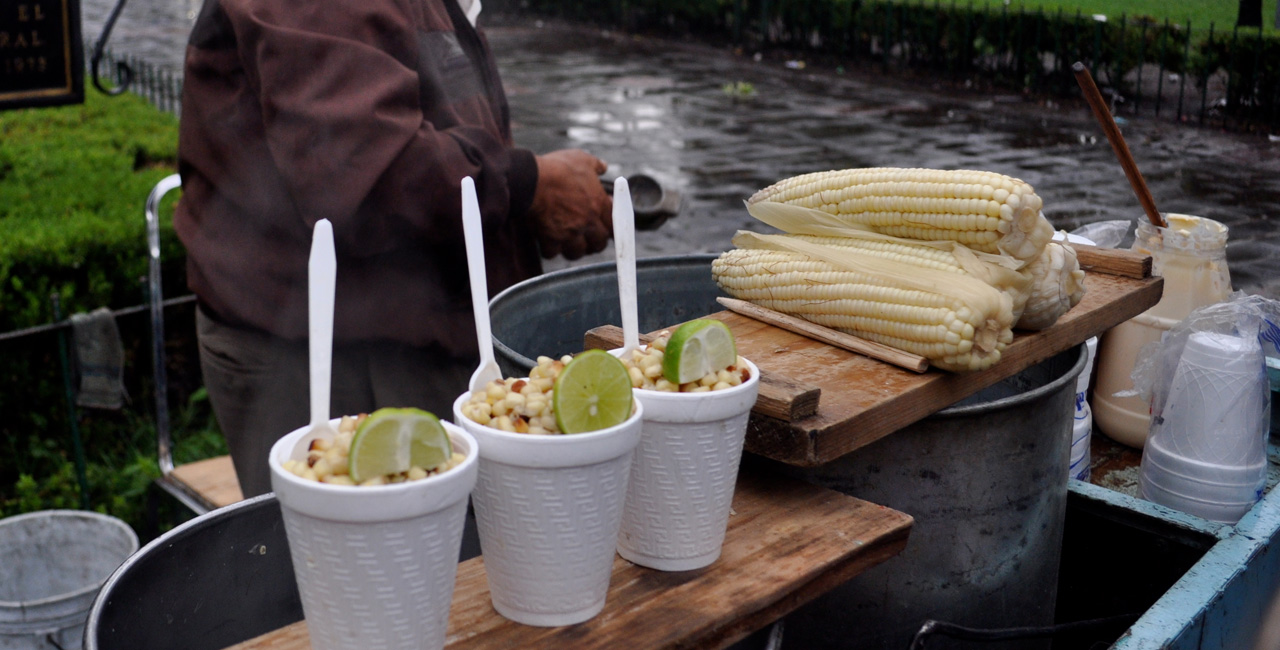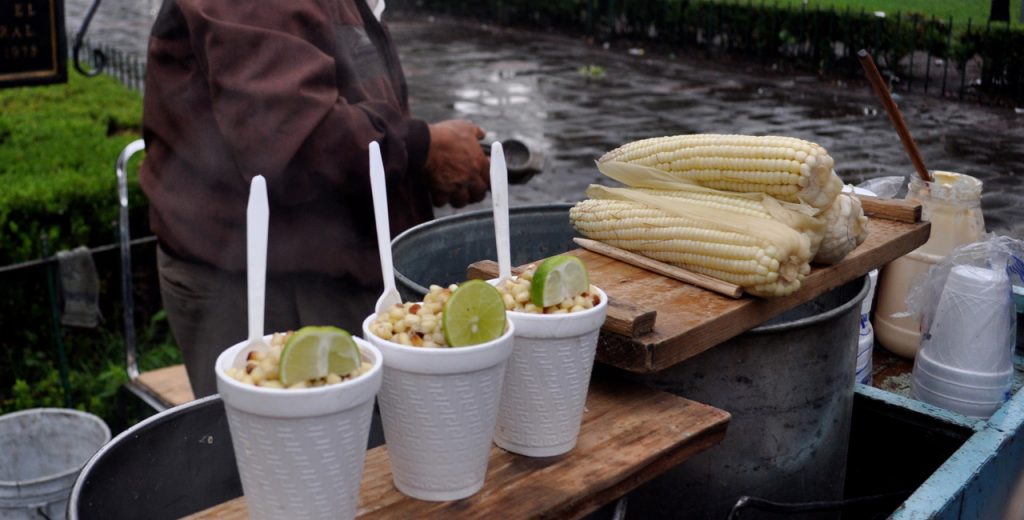In a deeply unsettling video that has now been widely circulated, an Argentine man (who the internet has identified as Carlos Hakas) is seen maliciously knocking over Benjamín Ramírez’s cart in Los Angeles. The man, who was walking his dog, demanded that the elotero move the cart off the sidewalk. But Ramírez stood his ground, telling the man that there was plenty of space for him to walk. The bearded man, however, became further enraged and forcefully knocked the cart over. With elotes strewn across the floor and the cart damaged, Benjamín lost at least several hundred dollars in investment.
When 24-year-old elotero called Argentine man a racist, the musician snapped back, “I am not a racist, you idiot. I’m Argentine.” Carlos went onto use a derogatory term that the mentally disabled community has long fought against. In the span of two minutes, the man reacted hatefully, displayed a complete misunderstanding of how being Latino doesn’t absolve him of racist behavior against other Latinos, ignored the race and class privileges afforded to him, and employed ableist language.
Imelda Reyes – Benjamín’s mom – posted the video, stating, “What do you think about the fact that people like this guy exist? My son, Benjamín, earns a living through honorable work.” Unfortunately, what happened to Ramírez isn’t unique. Street vendors, who work in an industry that Los Angeles hasn’t legalized, are subject to constant threats from both the police and citizens.
“We’ve heard many stories where vendors are harassed by police – many times because it is illegal to vend on the sidewalk,” Carla de Paz, director of Community Organizing at the East LA Community Corporation (which is part of the The Los Angeles Street Vendor Campaign), told Remezcla in a phone interview. “But then [they’re also harassed] by people who are on the street like you see in the video, who don’t understand the thriving culture of street vending in the city. People who are moving into our city and are newcomers to some of our neighborhood and feel that street vending isn’t something necessarily that they like or appreciate. Because it is illegal, vendors don’t have legal protections.”
At the beginning of the year, the LA City Council voted to draft a law legalizing street vending. The move came as a response to Donald Trump’s push to deport larger numbers of undocumented immigrants. For decades, advocates have demanded that officials stop penalizing street vendors – a large majority of whom are Latinos and/or immigrants. Street vendors have received warnings or tickets, as well as faced arrest and criminal misdemeanor charges – which increases their chances for deportation. As officials have failed to find a way to regulate the street vending industry that includes between 10,000 and 50,000 people, it’s immigrants who have suffered.
Regulating the industry is a long process. Therefore, Los Angeles decriminalized street vending, so that vendors didn’t have to worry about convictions. But it’s not as straightforward as it sounds. “We were very happy in February, because we were able to remove that misdemeanor charge from the sidewalk vending,” de Paz said, adding that it only applies to sidewalk vending. “We’re working to remove the misdemeanor charge from the park vending and the LA County unincorporated areas. Vending in like LA County, the unincorporated area, that hasn’t been decriminalized at all. So vendors who are vending at like Echo Park… those vendors could still get misdemeanor charges for vending.”
And while the city has made some strides toward protecting vendors, there’s still a long way to go. Because the industry isn’t fully regularized, some vendors are afraid to contact police after being physically attacked. And when they do call the police, they’re not guaranteed to receive the help they need. In a Facebook Live interview with journalist Aura Bogado, Benjamín’s dad, Alex Ramírez, said that cops arrived at the scene, but didn’t arrest the man who knocked over the cart because he spoke English. In another Facebook Live video, journalist Bogado learned that Benjamín had faced harassment at the hands of the same man multiple times.
In the absence of justice, the community has come together to support Benjamín. Cartoonist Lalo Alcaraz, for example, is selling Elote Justice prints and donating half of the proceeds to Benjamín.
There’s also a GoFundMe campaign underway for Ramírez and other eloteros. With a goal of raising $15,000, this campaign will benefit vendors who have either had their equipment confiscated or, like Ramírez, had their carts damaged. Imelda also launched a GoFundMe campaign, hoping to raise $800 for her son. Donate here.




